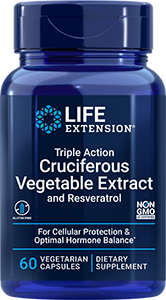| Blood pressure is a measurement of the force exerted by blood as it flows through the arteries. High blood pressure occurs when there is an increase of force against the arterial wall, with potentially damaging consequences. Among adults, a normal blood pressure measure is considered to be below 120/80 mm Hg. Any blood pressure reading higher than this reflects elevated blood pressure. The force of blood pressure is measured in two stages: when the heart is contracting (systolic pressure) and relaxing (diastolic pressure). Blood pressure is always expressed in pressure units of millimeters of mercury (mm Hg), and written as systolic over diastolic pressure. For example, a blood pressure reading of 120/80 mm Hg would mean a systolic pressure of 120 mm Hg and a diastolic pressure of 80 mm Hg. CoQ10 is found in the mitochondria, which is the energy-producing center of cells. It is involved in making the molecule known as adenosine triphosphate (ATP). ATP is the cell’s major energy source. CoQ10 also serves as an antioxidant. Some studies have suggested that CoQ10 may stimulate the immune system and increase resistance to disease (Folkers K et al 1988), as well as lower blood pressure (Hodgson JM et al 2002). One theory to explain the effectiveness of CoQ10 on blood pressure concerns its role as an antioxidant. Studies of diabetics have found that increased oxidative stress may underlie endothelial dysfunction by decreasing production and increasing consumption of nitric oxide, as well as generating free radicals. CoQ10 has been found to mitigate this effect by reducing oxidative stress, thereby normalizing nitric oxide production and consumption (Chew GT et al 2004; Watts GF et al 2002). CoQ10 has been widely studied in patients who have congestive heart failure and take hypertensive medications. One study of 109 patients with essential hypertension who supplemented their diets with 225 mg/day of CoQ10 in addition to their hypertensive medication, found that participants gradually were able to decrease the need for drug therapy during the first 1 to 6 months. Fifty-one percent of the participants were able to completely discontinue some of their medications an average of 4.4 months after they began CoQ10 supplementation (Langsjoen P et al 1994). | October 3-4, 2009
Yes We Can . . . Think Outside the Box
A conference on science-based medicine Presented by the Robert Fishman Institute for Training & Research Nova Southeastern University, Health Professions Division 3200 S. University Dr., Davie, FL (Ft. Lauderdale area) Topics Will Include: - Evolution of bio-identical hormone therapy
- Stepping above the standard of care: By the book
- Genomics: A key to personalized and individualized medicine
- Endocrinology: The things we never learned in school about balancing our glands and hormones
- “Let your food be your medicine and your medicine be your food”: Yes, clinical nutrition is science-based
- What’s best for your practice and your patient: The legal and political ramifications
- Neurotransmitters: The biochemistry and balancing of your body’s messengers
Speakers will include Eldred Taylor, MD, Joe Veltmann, PhD, Robert Fishman, PD, Rph, CP CN, Steven V. Joyal, MD, Lynn Lafferty, PharmD, ND, Tracy Hunter, PhD, Maria Mahmoodi, MD, and Scott Fogle, ND. To register, call 1-866-598-6752, Fax 1-800-528-8984
For those conference participants who might need to book accommodations, Life Extension has secured a special rate of $89 per night for a limited number of rooms at The Westin Fort Lauderdale. Additional days at this rate before or after the event will be based on availability. Reservations must be made by September 30, 2009. Shuttle service to and from Nova Southeastern University will be provided. - Outdoor whirlpool
- WestinWORKOUT® gym
- Wake-up service available
- Luggage storage
- Express check-out
- And many more special features!
Call 1-800-791-4457 |















